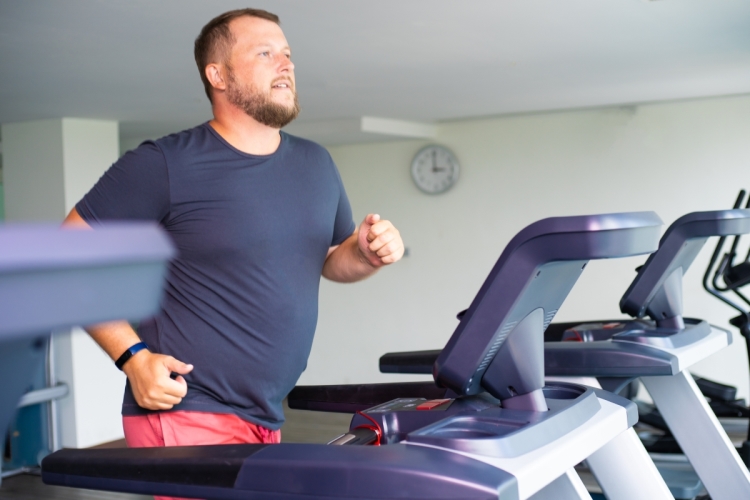How to Believe in Yourself: 10 Tips for Becoming Your Best Self
Guest Post by William Anton PhD on June 12th, 2022
William D. Anton, Ph.D is a renowned clinical psychologist, psychoanalyst, and founder of CEO Effectiveness.
Best of all, he is also my father.
I was thrilled when he accepted my invitation to share his wisdom with my readers.
I know you will enjoy what he has to say as well.

Almost all of us want to feel more confident, happy, and successful!
And believe in our ability to create these outcomes.
What keeps many people from achieving these desirable outcomes is often a lack of belief in themselves.
And as a result, they avoid taking the actions that would lead to these desirable outcomes.
This unfortunately leads to a self-perpetuating cycle that leaves many people feeling stuck.
Learning how to believe in yourself is necessary for achieving goals and handling challenges, but how do we do it?
Factors That Influence Belief
There are key factors that influence our self-beliefs.
As described by the famous psychologist, Albert Bandura, our thoughts/emotions, behaviors, and environment influence each other in a reciprocal manner.
This means that any time we change one of these factors, we are automatically influencing the other factors.
So, an important first step in developing a strong belief in yourself is recognizing which of these factors may be influencing your beliefs about yourself, oftentimes it is all three!
The Path to Your Best Self
Before we get into specific steps that can be taken to improve this self-belief, it’s important to recognize that there will always be a discrepancy between the ideal or “perfect” you and the present you.
This gap is there for everyone, but for some people the gap is discouraging and can lead to negative self-talk and abandonment of behaviors that would have moved them closer to their goals.
Conversely, the gap can be motivating for others and lead them to take greater action.
So, what makes the difference in the two outcomes?
In this case, the key difference related to the thoughts/emotions about the gap.
10 Key Skills to Help You Become Best Version of Yourself
To become the best version of yourself, you must not be overly concerned with other people’s lives or world affairs.
This is because every moment spent focusing on other people’s actions is a moment that could be spent on self-improvement, or on creating the life you want.
Bringing the energy spent on reading news, pop culture, and talking about others to work on your own affairs and progress can make such a big difference in your self-belief and becoming the best version of yourself.
Below are key skills to help you do just that:
Believe in Yourself and Become Your Best Self
Learning how to believe in yourself is learning to pay more attention to things that move you forward, and less attention to things that aren’t aligned with your path.
Spending time on skills like the ones mentioned above will increase your effectiveness, confidence and self-belief.
As your belief grows, you will be stepping into and becoming the best version of yourself.
How to Believe in Yourself: 10 Tips for Becoming Your Best Self
Guest Post by William Anton PhD on June 12th, 2022
William D. Anton, Ph.D is a renowned clinical psychologist, psychoanalyst, and founder of CEO Effectiveness.
Best of all, he is also my father.
I was thrilled when he accepted my invitation to share his wisdom with my readers.
I know you will enjoy what he has to say as well.

Almost all of us want to feel more confident, happy, and successful!
And believe in our ability to create these outcomes.
What keeps many people from achieving these desirable outcomes is often a lack of belief in themselves.
And as a result, they avoid taking the actions that would lead to these desirable outcomes.
This unfortunately leads to a self-perpetuating cycle that leaves many people feeling stuck.
Learning how to believe in yourself is necessary for achieving goals and handling challenges, but how do we do it?
Factors That Influence Belief
There are key factors that influence our self-beliefs.
As described by the famous psychologist, Albert Bandura, our thoughts/emotions, behaviors, and environment influence each other in a reciprocal manner.
This means that any time we change one of these factors, we are automatically influencing the other factors.
So, an important first step in developing a strong belief in yourself is recognizing which of these factors may be influencing your beliefs about yourself, oftentimes it is all three!
The Path to Your Best Self
Before we get into specific steps that can be taken to improve this self-belief, it’s important to recognize that there will always be a discrepancy between the ideal or “perfect” you and the present you.
This gap is there for everyone, but for some people the gap is discouraging and can lead to negative self-talk and abandonment of behaviors that would have moved them closer to their goals.
Conversely, the gap can be motivating for others and lead them to take greater action.
So, what makes the difference in the two outcomes?
In this case, the key difference related to the thoughts/emotions about the gap.
10 Key Skills to Help You Become Best Version of Yourself
To become the best version of yourself, you must not be overly concerned with other people’s lives or world affairs.
This is because every moment spent focusing on other people’s actions is a moment that could be spent on self-improvement, or on creating the life you want.
Bringing the energy spent on reading news, pop culture, and talking about others to work on your own affairs and progress can make such a big difference in your self-belief and becoming the best version of yourself.
Below are key skills to help you do just that:
Believe in Yourself and Become Your Best Self
Learning how to believe in yourself is learning to pay more attention to things that move you forward, and less attention to things that aren’t aligned with your path.
Spending time on skills like the ones mentioned above will increase your effectiveness, confidence and self-belief.
As your belief grows, you will be stepping into and becoming the best version of yourself.

Get the Beginner’s Guide to Intermittent Fasting
Take advantage of this FREE PDF and learn the basics of intermittent fasting.

Get the Beginner’s Guide to Intermittent Fasting
Take advantage of this 100% free PDF and learn the basics of intermittent fasting.

Get the Beginner’s Guide to Intermittent Fasting
Take advantage of this FREE PDF and learn the basics of intermittent fasting.









